Final Fantasy is one of those sacred things that you just never touch, so I am going to commit a vast heretical crime here by stating and proving my assertion that what made the series great and magical has long since disappeared. To back up these assertions, let me state that it was a teenage goal of mine to beat every Final Fantasy from FFI through FFX (yes, all the Japanese ones at the time), as well as a slew of side games. That goal accomplished, I played several more over the years (X-2, XI, XII, XIII), and each was an affront to the series and its history.
To understand what made the series great, it is necessary to start at the beginning. The original game on the NES was far ahead of its time, with various RPG staples like classes, archetypes (the tough knight, the fragile white mage, the dangerous black mage), and the general plot of being nobodies who eventually save the world. So vital and far reaching was this game that even today we still see references such as the ubiquitous black mage or the soft and caring white mage (or at least its archetype).
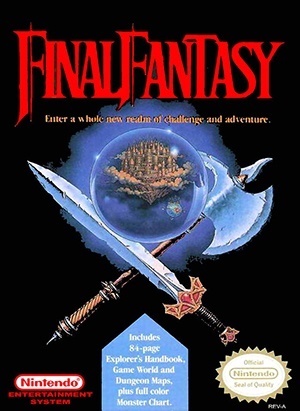
The story itself, while simple, was somewhat fun for young gamers at the time. Worthless characters eventually level up enough and even "grow up" in their class change to go back in time and save the world. It was a feeling unlike other games at the time - a long, gripping narrative that took hours upon hours to eventually finish.
One of the most important traits of Final Fantasy I was its linearity. By being linear (in direct contrast to open world), the game could weave a tight narrative and have gameplay elements directly programmed for the experience. This trait is one of the key differences between Western RPGs and Japanese RPGs. It is also ironic that games like Mass Effect actually derive huge amounts of JRPG aspects to them, which allows a far more gripping narrative than a pure WRPG in contrast.
Within this, an incredible story could be told. Take Final Fantasy IV ("FFII" when it was first released on SNES in North America in 1991). It is important in the discussion to remember many game "tropes" had not been established yet. As the second game the Western world saw of the series (Final Fantasy had still not released in Europe at the time), it was mind-blowingly ahead of the NES title, which already established a solid beachhead. It told the story of Cecil, a dark knight who essentially was going around killing other towns to take their crystals. He is tasked with delivering what ultimately is a bomb to an innocent village along with his friend Kain. He kills everyone except for a young girl named Rydia.
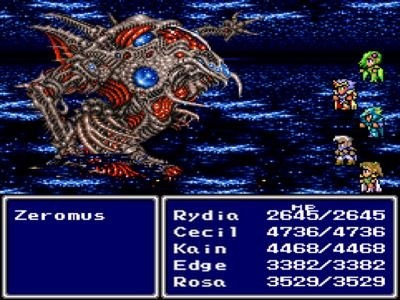
The story is captivating, where Cecil is racked by guilt and tries to atone through this girl (who starts off hating him). He loses everyone important to him in a shipwreck, and has to go through one of the most interesting sections of a game that still has yet to be beaten, where he fights his shadow self on the road to becoming a paladin - and the only way to win is to not attack. Cecil was strong, dark, and edgy, and now he is this weak hero of light. As the player, we felt the weight of the decision.
Eventually, a lot happens, which includes being saved by an older Rydia who grew up in a monster dimension. The Rydia save is another awesome moment in FFIV. As the player is beat down by a superior opponent, it seems hopeless… And then a sudden save by…the young girl we tried to redeem our dark heart and thought dead!? It is worth noting that the bad guy, Golbez, is arguably the most capable villain in the series' history; he never sustains a loss and simply decides to help the heroes with a bigger threat. Cecil loses many people throughout the story, but stoically continues onwards through his quest. We never see a stoic hero after Final Fantasy VI, which was around the turning point of the series.
I only briefly touched on the story of FFIV, but it was years ahead of its time in many aspects: non-main character plots, redemption, betrayal, and a lot of other storylines that were novel in that period. Future games would be marred by simpler plots, predictable "twists," unexplained plot holes, and angsty main characters.
Before I go into another game, which is typically viewed by many as the height of the series, let's contrast this with many of the other later games. Take Final Fantasy XII, which, other than the really odd (and arguably World of Warcraft rip-off) combat system, was a mishmash of bad ideas and recycled elements. It would be hard-pressed to explain to someone that the story of XII was not a retelling of Final Fantasy IX. We have the street-smart wild man, the misunderstood sky pirate, the naïve but strong-willed princess who wants to see the world, the token beast female character who is tough and doesn't say much…
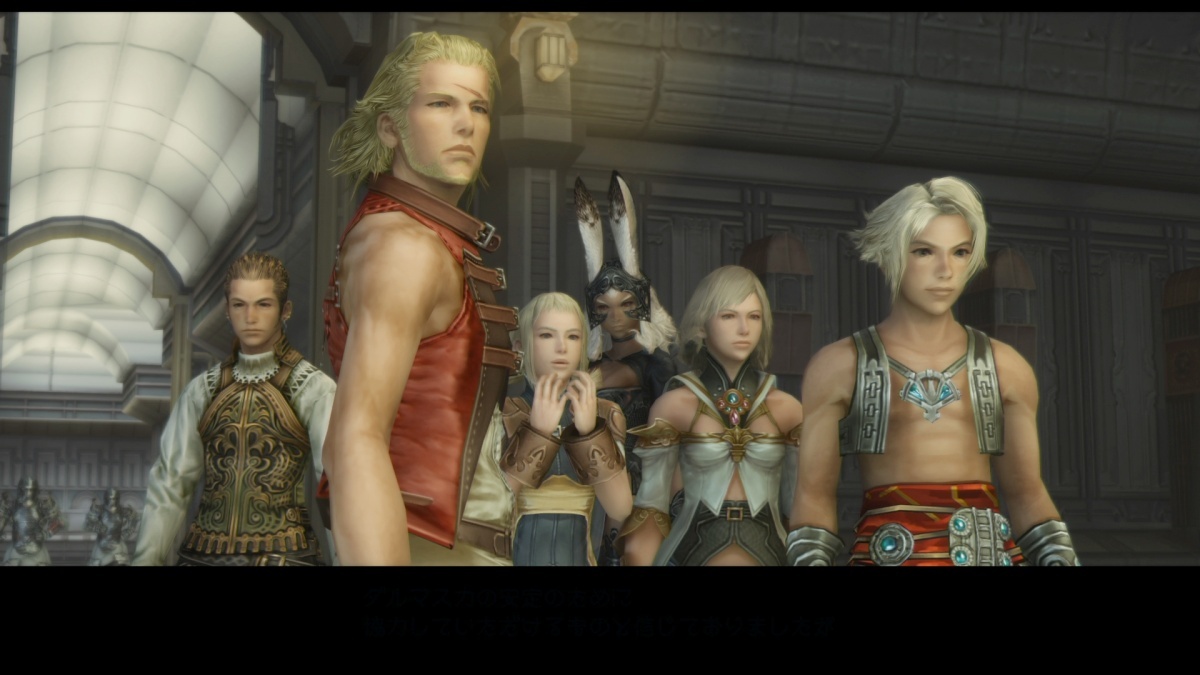
FFIX, like XII, was a disaster because the story was not at all gripping. The characters were static and cardboard-like, and there was not any sort of real growth felt. The characters were just kind of there. Even the big reveals like Zidane having Super Saiyan powers just felt…stupid.
The later games started focusing more on looking good than being good. Final Fantasy XIII encapsulated this with endless "rule of cool" tropes. The story carries on more so of "what would be cool next" instead of a gripping narrative. The major issue is how ham-fisted later narratives became compared to the nuance of earlier games. The factor should really be considered even more potent that later games have the benefit of experience and still fail to deliver. All the characters were frontloaded with all this import that it left little on the table for growth or interest. It was always "leader of this" and "ruler of that." Gone were the stories of regular people drawn into conflicts out of their control.
Final Fantasy VI represented the pinnacle of the series. Any of the core characters here demonstrate a superiority compared to later heavy-handed angst and pseudo-coolness of future games. Consider Terra, the "main" character who was a slave to an empire. She breaks free and realizes her dark past. Rather than brood on it the whole game, she later actually has an orphanage to help kids, and, in fact, literally does not even need to be recruited to finish the game.
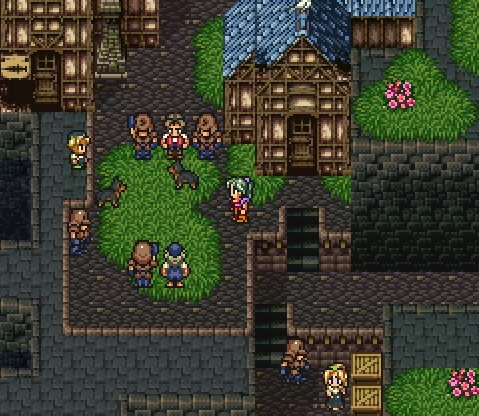
We see leader-types, like the king Edgar, who isn't angry at the world and doesn't want to prove himself; he is simply a capable leader that his people respect. The bandit Locke is another interesting study, as many later games copy his persona to some degree, but ramp up the "lovable rogue" to painful levels. His story intertwines with saving Celes, but only later do we find out he was actually doing this to assuage his own subconscious over a girl he let die in his past. It is never explained if he actually cared for Celes, and this level of vagueness goes a very long way, unlike future games.
One last point I want to touch on is the superiority of sprites. Games like FFIV, V, and VI are still playable and enjoyable today, as the colours are bright, and are cartoon representations of the characters, which also have the benefit of including imagination out of the player. By trying to stay up with the times, what looked good at the time looks laughable today:
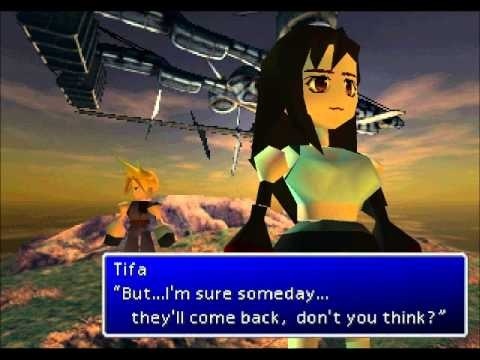
Really, older games simply required more out of the player in exchange for a better reward. It required them to actually imagine what they might feel in the situation. It required them to process what was happening between the lines, and asked for some degree of self-sufficiency in lieu of being force-fed a substandard plot. In return, the player received an experience that was unmatched by future games of the series that the only resemblance they bore was in name only.

 Sign In
Sign In 20.12.2017
20.12.2017 
 Link to this post:
Link to this post:  Dragon0085
Dragon0085  Subscribe to this topic
Subscribe to this topic Features
Features





 Top
Top

